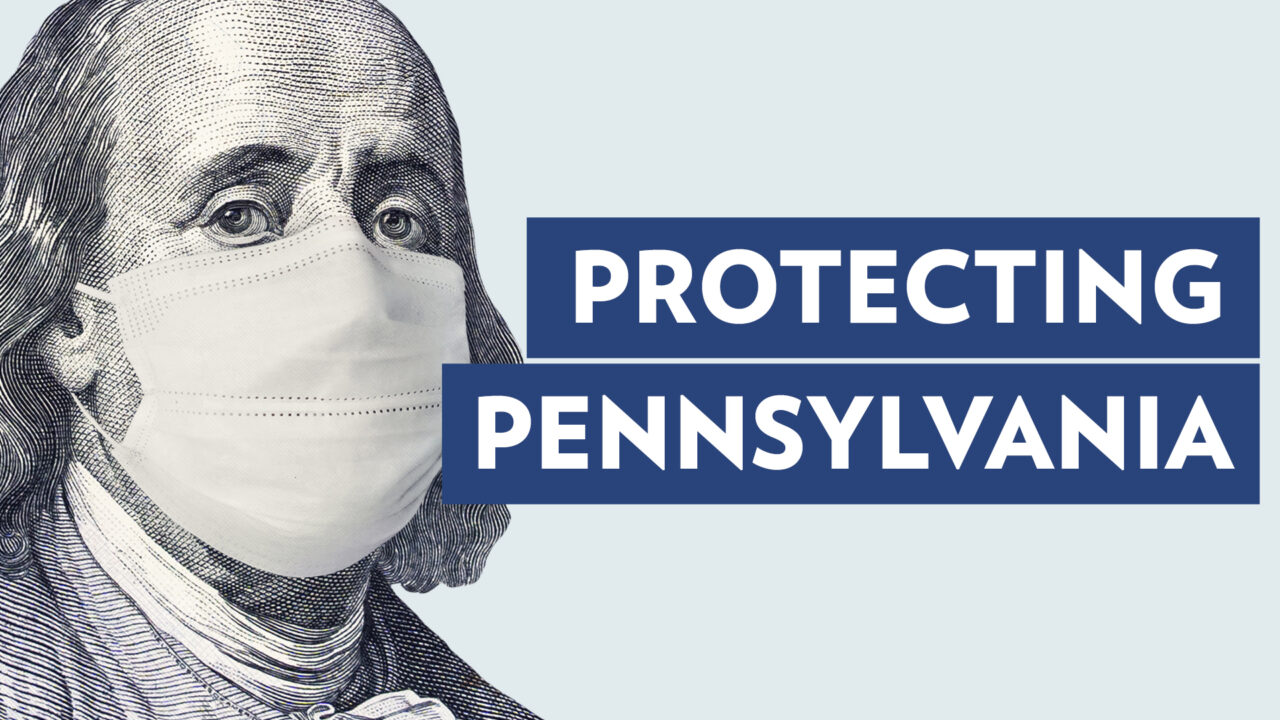Commentary

Pennsylvania’s Budget Is Not Crisis Proof
Pennsylvania’s March revenue report from the Independent Fiscal Office (IFO) shows that state lawmakers will face revenue shortfalls from the coming economic downturn. March’s General Fund revenue collections are roughly $332 million below estimates. Thankfully, the previous month’s collections were higher than expected, but still the General Fund balance is more than $33 million below initial estimates.
The revenue situation will certainly worsen substantially in the coming months, as business closures have no end date, more than 1 million workers have filed for unemployment, and Governor Wolf’s “stay at home” order has been extended through April 30, 2020.
Chart: Pennsylvania Weekly Unemployment Claims
Tax collections dropped across the board, with major shortfalls occurring in Corporate Net Income Tax (CNIT) and the Personal Income Tax (PIT).
Federal funds from the Coronavirus Aid, Relief and Economic Security (CARES) Act will mitigate some of this budget shortfall. Of the $150 billion in federal aid going to the states, Pennsylvania will receive almost $5 billion, with roughly $1 billion earmarked for seven different counties.
Chart: Pennsylvania's Allocation of CARES Aid
It is impossible to know when the closures and unemployment related to COVID-19 will end. The federal aid package will ease financial constraints due to low revenue, but Pennsylvanians and their lawmakers should not forget the fiscal reality they would be facing without it.
The March numbers alone wiped out a small revenue surplus and leaves the General Fund with a deficit of $33 million.
Unfortunately, state spending growth has been surpassing economic growth for years, with the temptation to spend every dollar in good economic times. Economic downturns quickly draining the small rainy-day fund–in 2020 this fund could cover expenses for fewer than four days.
As a result, Pennsylvania is in a poor position to weather fiscal fluctuations—like those being caused by the coronavirus.
Practicing smart budgeting before crises helps the state manage its budget during a crisis. Here are three budget basics that could help lawmakers do just that:
- Enact a balanced budget without tax hikes: With skyrocketing unemployment, the last thing Pennsylvanians need is a tax hike to pay for government spending. Despite the current crisis, lawmakers should use federal funds to cover expenses, instead of raising taxes.
- Limit state spending growth: Existing legislation (referred to as the Taxpayer Protection Act) would limit spending growth and enable lawmakers to make more deposits into the rainy-day fund to better prepare for future shortfalls.
- Adopt transparency in budgeting: The IFO report shows that state revenue has taken a hit from COVID-19. Current balances in the shadow budget should be tapped in order to cover this difference. Much of state spending is automatic, with roughly $52 billion being spent from the “shadow budget” last year. Bringing this spending under General Fund directives and tapping some special fund balances can help lawmakers enact a balanced budget amidst the revenue shortfall.
Even if revenues hadn’t declined, cost overruns from last year would have eaten away at surplus revenues. Governor Wolf’s executive budget included $588 million in supplemental appropriations. With or without COVID-19, Pennsylvania lawmakers need to address the budget and start prioritizing spending.
COVID-19 has highlighted cracks in our current budget system. Sticking to these budget basics will help Pennsylvania withstand the current crisis, as well as reform the budget to always be prepared for financial upheavals.